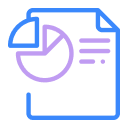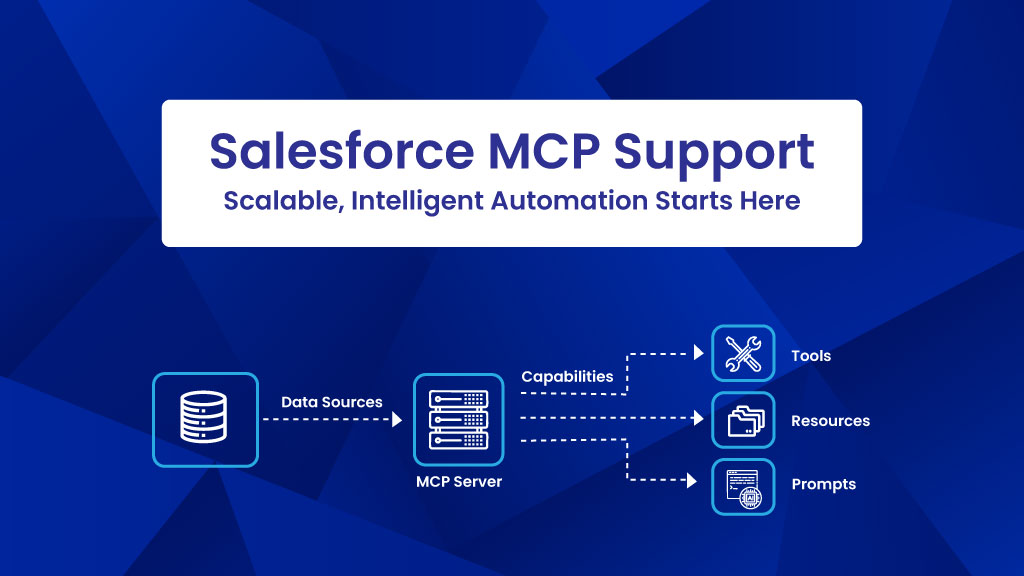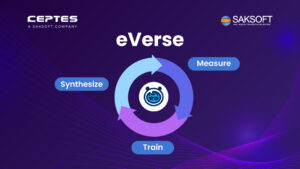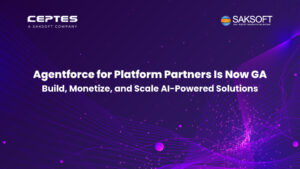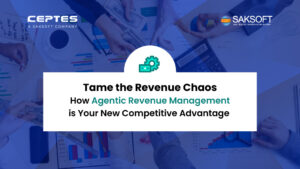Generative AI is powerful—but without real-world context or the ability to act, it’s just guesswork at scale. The real magic begins when AI knows your business and knows what to do next.
As AI became smarter and more conversational, we hit a wall. Why? Because AI didn’t know our business. It could talk. It could generate text. But it couldn’t act—at least, not without developers writing custom logic, mapping APIs, and manually wiring everything behind the scenes.
That’s exactly what Salesforce Model Context Protocol (MCP) solves.
MCP is a big leap forward in how AI agents operate. According to Gartner’s recent Innovation Insight report on MCP , 75% of API gateway vendors, and 50% of iPaaS vendors, will have MCP features by 2026.
Instead of just answering questions, agents can now perform multi-step, real-world tasks—like retrieving Salesforce records, summarizing documents, or saving content—without needing hardcoded instructions. Previously, all these actions required unique APIs, custom logic, and resource allocation to gather it all together.
Now, it’s just plug-and-play.
So, What exactly is MCP?
MCP stands for Model Context Protocol. It’s an open-source, standardized protocol that makes it easier for AI apps and agents to connect with tools and data sources. It allows LLMs and AI agents to securely access real-time, well-governed enterprise data whenever needed, all while upholding strict privacy and compliance standards.
Agents can make structured requests to any tool that supports MCP, receive real-time responses, and even connect multiple tools in sequence—without needing to know the details in advance.
🚀 Want to see Salesforce MCP in action?
Join our upcoming live webinar to explore how MCP empowers the Salesforce agent ecosystem with smarter, AI-driven automation.
What does it mean in the Salesforce context?
Salesforce serves as a core platform for managing critical customer and business data. Meanwhile, companies are increasingly adopting AI agents powered by Large Language Models (LLMs) to automate tasks, improve service efficiency, and generate real-time insights.
But Salesforce alone doesn’t hold all the necessary information—key data like financial details, medical records, or in-depth product usage often lives across multiple systems and applications, both within and outside Salesforce. For AI agents to deliver accurate, reliable results, they need access to this complete data landscape. When data stays siloed, AI responses can be incomplete or misleading—often referred to as hallucinations. That’s where the Model Context Protocol (MCP) plays a vital role.

Streamline Salesforce Development with Prebuilt MCP Servers:
Now, you can ask AI to handle dev tasks—like deploying code or managing apps—using simple natural language instead of complex commands. Thanks to MCP, three ready-to-use servers are available for Salesforce developers:
- Salesforce DX MCP Server (Preview) – Run tasks like creating scratch orgs, deploying code, and running tests with plain English commands.
- Heroku MCP Server (GA) – Easily manage Heroku apps, dynos, and add-ons straight from your IDE.
- MuleSoft MCP Server (GA) – With MuleSoft MCP Support, organizations can expose APIs as MCP servers, allowing AI agents to seamlessly discover and trigger enterprise actions. This eliminates the need for custom code, enabling faster, smarter integration of business data.
These servers work in any MCP-supported IDE and are built with security in mind, making developer workflows faster and smarter.
Importance of MCP for Smarter, Scalable AI:
AI tools are only as useful as the data they have access to and the actions they can take.
And if you want the AI to do something with that information—like send a report, create a task in your project management tool, update a record in your CRM —you need a way for it to interact with those apps. MCP makes that easier by giving AI tools a standardized way to discover and invoke actions in external systems.
1. Faster, Plug-and-Play Integrations
With MCP, Large language models (LLMs) can instantly connect to any compatible server—no custom coding required. Whether it’s a database, API, or application, if there’s an MCP server available, your LLM can access it.
2. Powering Autonomous Agents
MCP supercharges LLM-based agents by enabling real-time access to tools, APIs, and workflows. These agents can reason, make decisions, and execute tasks independently. With memory and learning components, they not only act—but adapt—refining strategies based on previous interactions.
3. Simplified Setup Across the Board
Instead of building new integrations for every new tool, developers only need one interface. Once an app supports MCP, it can connect to multiple services using the same mechanism—freeing teams to focus on core logic instead of boilerplate connection code.
4. A Unified Communication Protocol
MCP standardizes how tools and LLMs talk—using a common request-response format. This consistency makes it easier to debug, scale, and future-proof your stack. Even if you switch out a vendor, the MCP interface stays the same.
5. Built-In Conversational Context
MCP doesn’t just send data—it keeps the conversation flowing. It supports pre-built prompt templates, reference data ingestion, and multi-step task orchestration. Ideal for complex workflows like coding, decision-making, or multi-tool coordination.
By bridging LLMs with real-time, governed enterprise data through a unified protocol, MCP makes AI integration smarter, faster, and far more scalable—exactly what modern enterprises need to unlock the full power of GenAI.
Final Thoughts
In the age of AI, context is king. And Salesforce Model Context Protocol is here to give your AI tools the brains they’ve been missing. If you want AI that acts like a trusted teammate (not a clueless intern), MCP is your foundation.
Whether you’re looking to enhance AI agents, drive customer experiences, or simply stay ahead in this AI-first world— MCP is the next big thing you need to watch out for.
Ready to explore what MCP can do for you?
Let’s discuss how MCP can transform your Salesforce workflows in 30 days.
Related Article: MuleSoft Ushers in the Agentic Era with MCP and A2A Support for Scalable AI Agent Orchestration

Nilamani Das
Nilamani is a thought leader who champions the integration of AI, Data, CRM and Trust to craft impactful marketing strategies. He carries 25+ years of expertise in the technology industry with expertise in Go-to-Market Strategy, Marketing, Digital Transformation, Vision Development and Business Innovation.










